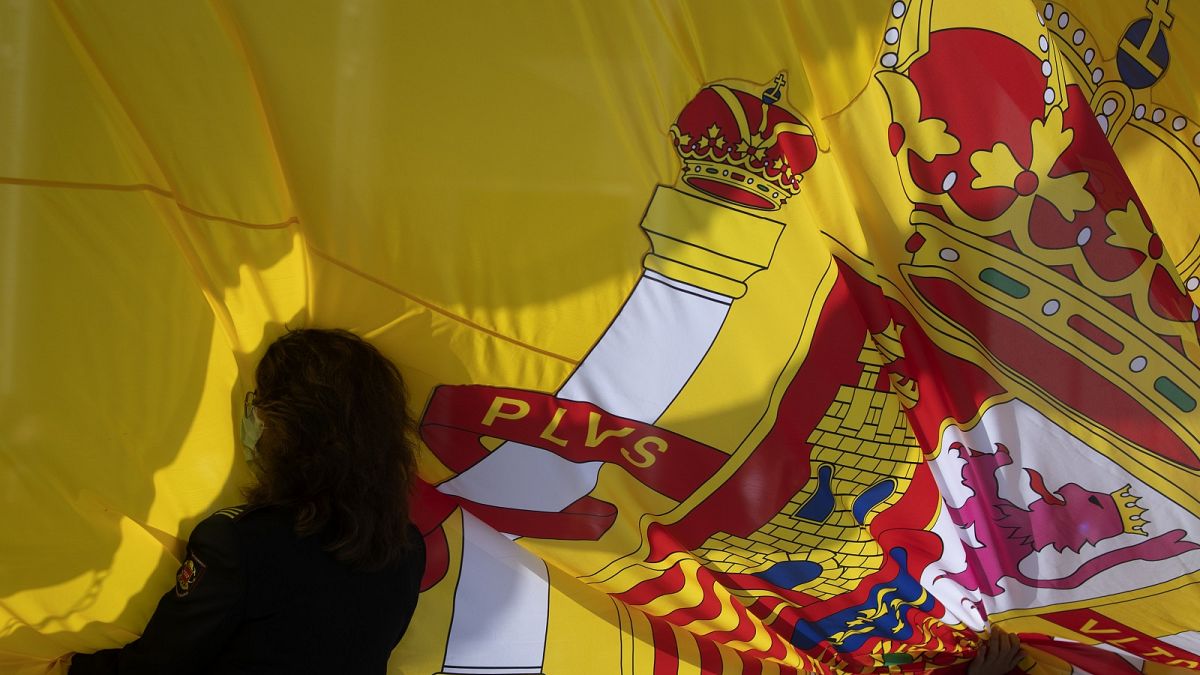The government on Sunday declared a new state of emergency, as it continues to battle a resurgence of coronavirus cases.
Spain began its first nationwide curfew on Sunday night after the government declared a new state of emergency, as it continues to battle a resurgence of coronavirus cases.
Free movement on the streets is restricted from 11 pm until 6 am CET, and is likely to remain in place for six months according to Prime Minister Pedro Sánchez.
The curfew allows exceptions for commuting to work, buying medicine, and caring for elderly and young family members.
"The reality is that Europe and Spain are immersed in a second wave of the pandemic," Sánchez said during a nationwide address after meeting with his Cabinet on Sunday. "The situation we are living in is extreme."
In a meeting that lasted two hours, the cabinet agreed to an initial 15-day state of alarm. The prime minister said he would seek approval from Parliament's lower house for an extension until next May.
Earlier, Sánchez's office said the proposal for a state of emergency had been welcomed by a majority of Spain's regional governments, "which have requested it".
On Saturday evening, administrations in at least nine regions had asked the central government in Madrid to declare a state of emergency or voiced their support for the move.
The leaders of Spain’s 17 regions and two autonomous cities will have the authority to modify the start and end times of the curfew in their territory by an hour. They can also close regional borders to travel, and limit gatherings to six people who don’t live together, the prime minister said.
The curfew does not apply to Spain’s Canary Islands, which were recently removed from Britain’s and Germany’s list of unsafe travel destinations as the situation has improved.
Health officials have been targeting nightlife and partying as some of the main sources for the latest revival of infections.
This will be the second state of emergency declared this year in Spain after one in March to contain the first wave of the coronavirus lasted until June. This is just the fourth time a state of emergency has been declared since Spain's transition to democracy in the 1970s.
Sánchez prepared the groundwork on Friday in a speech in which he warned the country that "the situation (was) serious," that "the coming weeks and months... [would] be hard, very hard" and that he was "ready to adopt all necessary measures" to curb the pandemic.
Two days earlier, Spain became the first European Union country and the sixth in the world to exceed one million cases of COVID-19, with Sánchez admitting on Friday that the real number of people infected with the coronavirus in Spain was estimated to be over three million.
Spain has so far recorded nearly 35,000 deaths since the start of the pandemic.
In the hours following Sánchez's speech, several regional presidents immediately called on him to declare the state of health emergency so that a curfew could be imposed to limit travel and night-time gatherings.
The regions ran the risk of having their measures annulled by the courts because they infringe on freedoms - this is particularly the case in the Basque Country.
In Spain, public health is the prerogative of each region.
The state of emergency was therefore required to provide the legal framework to remove the anti-COVID measures taken by regional governments from the control of the courts.
Sánchez decided to act after he was assured that he would have sufficient support to obtain the renewal of this state of health emergency when it expires after 15 days.
The PM is leading a minority left-wing coalition government, but Basque and Catalan nationalists and even a small centre-right party, Ciudadanos, which is part of the conservative opposition, are insisting on a state of emergency, guaranteeing him the necessary votes when the time comes.
The government has tried unsuccessfully to convince the main right-wing opposition party, the Popular Party (PP), to support this measure.
The PP has fiercely opposed the government's declaration of a state of emergency in Madrid earlier this month. The move, which affected 4.8 million in the capital region, was contested in the courts, which sided with the Madrid government.


